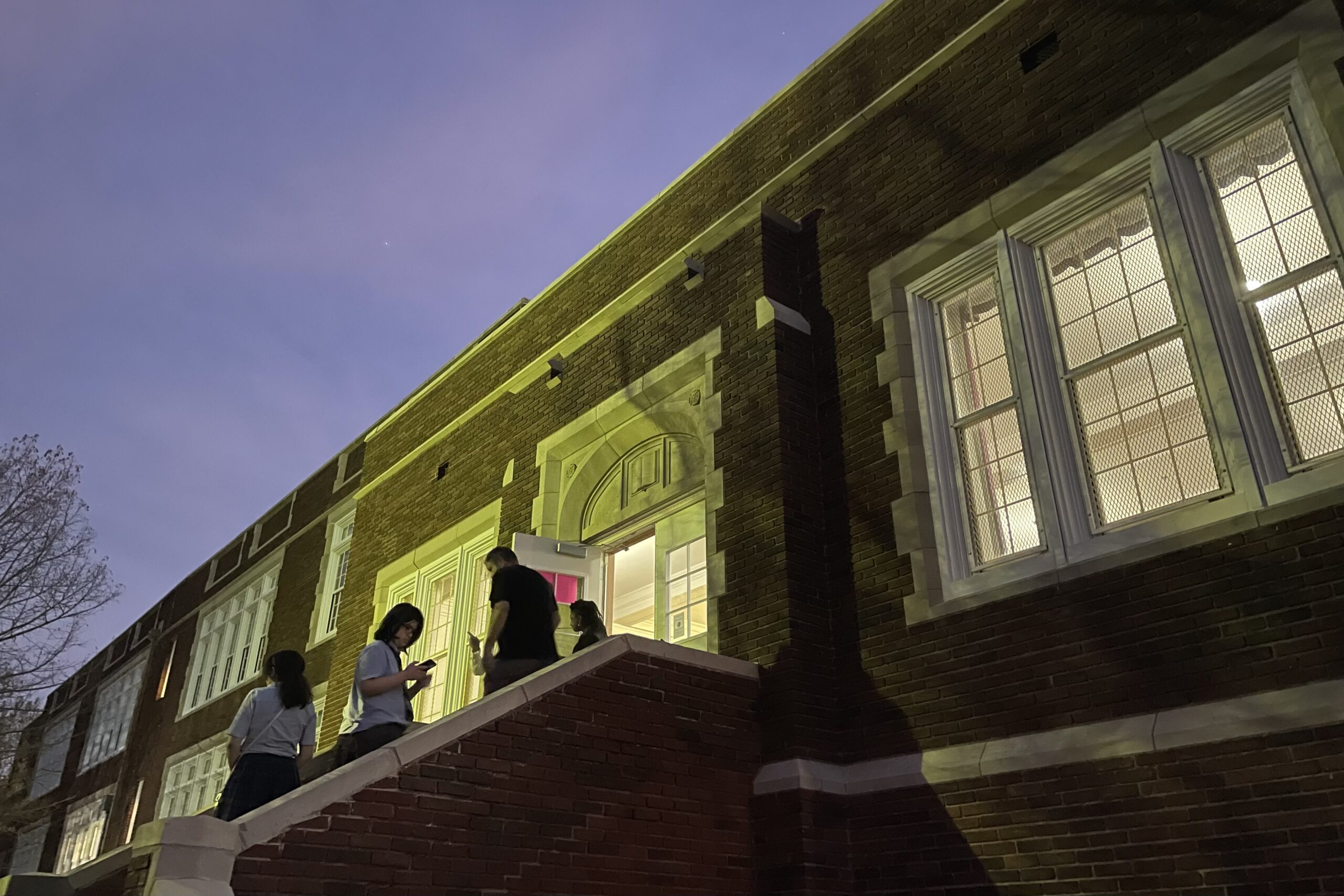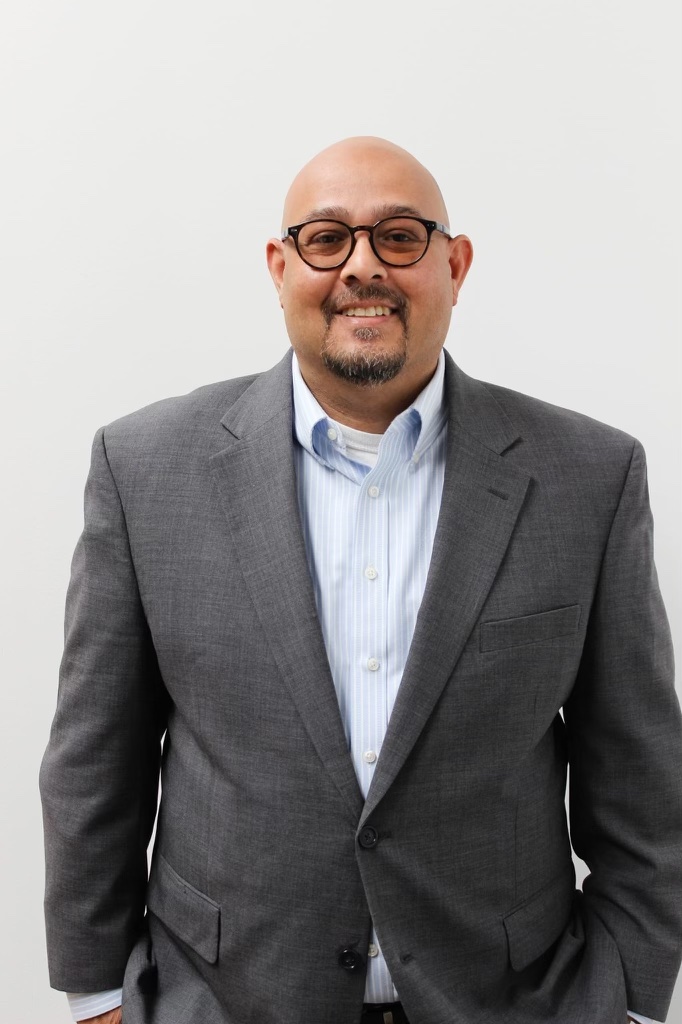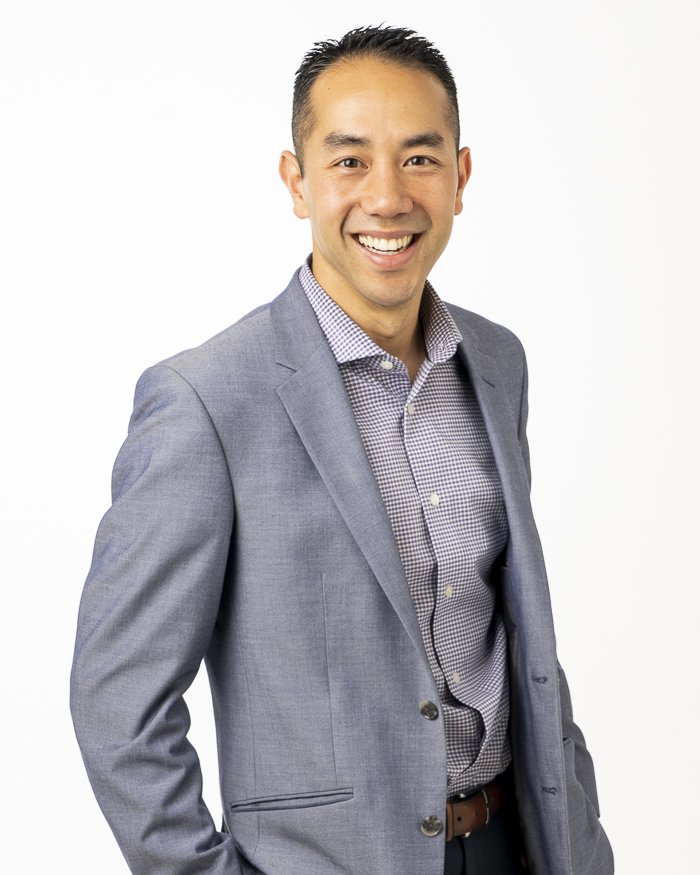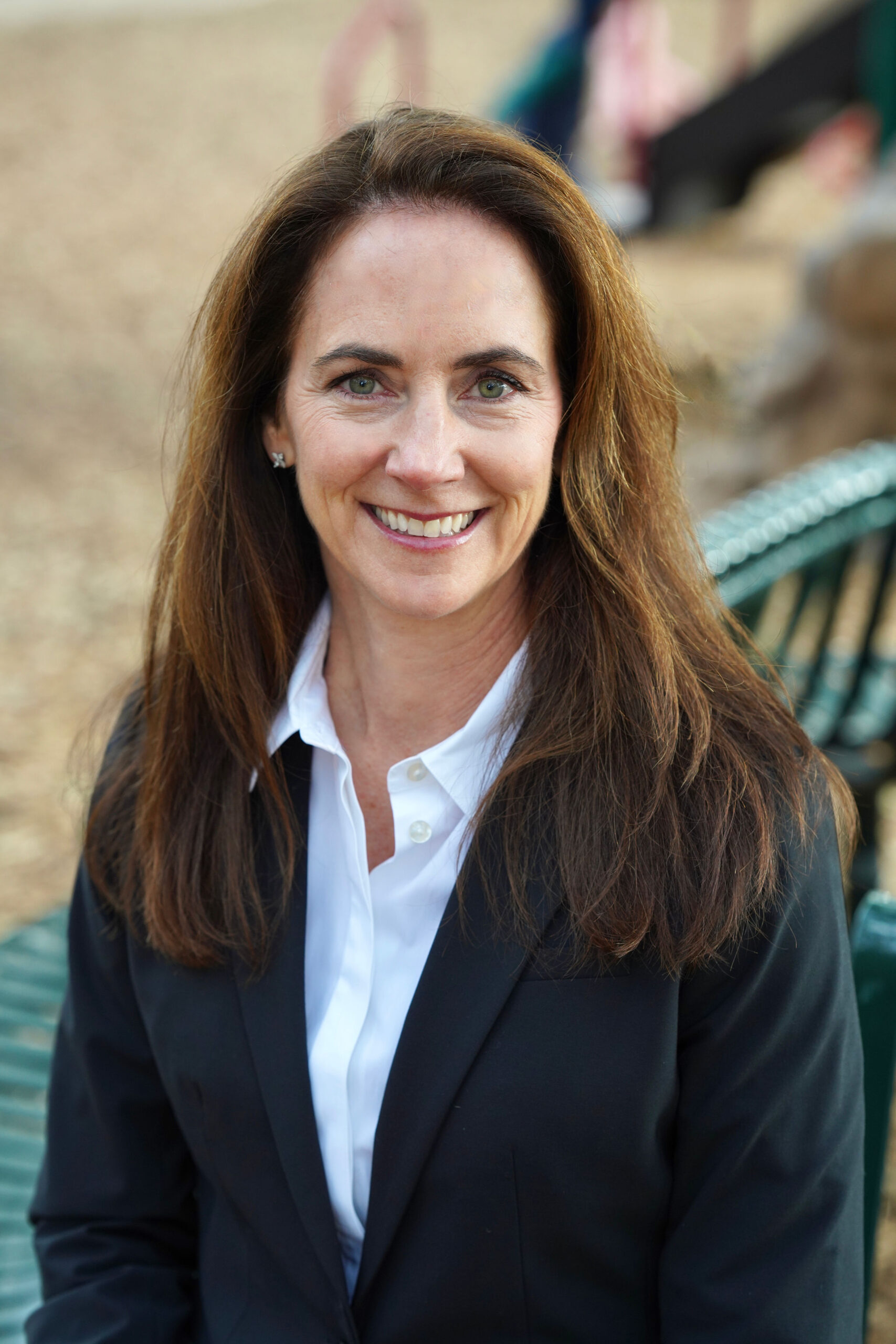
Lipscomb Elementary School. Photography by Renee Umsted.
Candidates for the Dallas ISD Board of Trustees District 2 seat presented ideas for balancing the budget and improving academic equity at Monday’s forum at Lipscomb Elementary.
The forum, hosted by the Lipscomb Elementary PTA, included candidates Jimmy Tran and Sarah Weinberg; Kevin Malonson, who is also running, did not attend the forum because his campaign kickoff was the same night.
Throughout the forum, Tran highlighted his experience as a small-business owner (he owns a couple of Code Ninjas locations) and former employee of large companies such as CBRE and Bain and Company. He has three students in Dallas ISD schools.
Weinberg focused on her experience as a CPA and CFA and advocate for education through nonprofits such as United to Learn.
Malonson, who has worked in education for 30 years, including as a vendor for DISD, is the executive director of Teach Plus Texas and has a daughter who graduated from Booker T. Washington High School and a seventh-grader at Dealey. He answered the same questions in a later interview.
Dustin Marshall currently represents District 2, which includes East Dallas schools such as Dan D. Rogers Elementary, Mockingbird Elementary, Geneva Heights Elementary, Lakewood Elementary, Long Elementary, Lipscomb Elementary, J.L. Long Middle School and Woodrow Wilson High School.
Early voting for the school board election is April 24-29. Election Day is May 6.
The questions below came from the PTA and members of the audience.
How will you help Lipscomb close the academic equity gap between privileges given to choice schools and local schools?
Tran said there has to be a strong pipeline to keep students in neighborhood schools. While he acknowledged the benefits of DISD’s choice school options, he said neighborhood schools have to be the foundation. International Baccalaureate is offered at both feeder patterns in District 2 — Hillcrest and Woodrow — which he said is an incentive to keep students in neighborhood schools.
“The district as a whole cannot be strong without a strong neighborhood program,” Tran said.
Weinberg said one part of academic equity is class ratio sizes, and she would analyze Lipscomb’s data and figure out how to improve the ratio.
DISD’s choice schools attract and maintain students, Malonson said. But in the future, neighborhood schools need to become choice schools, meaning that they need to have specific offerings developed for, with and by the communities they serve. DISD needs to let some of the choice schools “simmer” and invest money into the neighborhood schools.
How are you going to drive operational efficiencies?
Weinberg said it starts with understanding the systems at work. She would identify gaps and then encourage the superintendent and her team to shorten the timeframe to solve the problems.
Tran said as a trustee, he would break down barriers so that principals can get what they need from central staff quicker.
The first thing to do is eliminate fraud, waste and abuse in the budget, Malonson said. Also, local school communities need to develop relationships with trustees and set priorities.
The district keeps spending more than we have, while enrollment is decreasing. How can we stop the financial bleeding and put resources in the right spots, versus opening new schools?
Tran said schools have a lot of fixed costs. Some schools that are underperforming, that have low enrollment, may have to be closed. That would be determined in an open process by the board, the superintendent and the community.
Weinberg said it’s important to see what’s going on and whether the budget is reflecting the priorities. She also acknowledged that if some schools have to be closed, it should be done with community engagement.
“When budgets shrink, there are hard decisions that need to be made at times,” Weinberg said. “And I think it’s just crucial to engage the community in those conversations and to understand all the factors and to make sure that you’re in the schools.”
Malonson said he doesn’t think that reallocating resources or opening new schools is a fair choice. He said he has been advocating to raise the basic allotment and would encourage districts to use the state funding to pay teachers and staff more. Lobbying for enrollment-based funding rather than attendance-based funding can provide additional relief. As the ESSER and ARP funds run out, Malonson said, the district will have to rely on more money from the state or make cuts.
“I think that there are ways to reduce waste, fraud and abuse in the budget,” Malonson said. “I think there are also ways to prioritize money on people that are most proximate to children and figuring out different ways to innovate in what school design and instructional delivery looks like.”
Dallas ISD Board of Trustees candidates for District 2: Kevin Malonson, Jimmy Tran and Sarah Weinberg.
With the district supporting so much of its spending based off of emergency funding, how would you solve for this in the 2024-25 budget, and how do you see the district closing the gap without impacting academic equality?
Weinberg said it’s important to know where funding is coming from. It’s also important to see where money is being spent that is not tied to affecting academic outcomes, she said. Weinberg said some decisions would have to be made to reallocate funds, and she would look for alternative source of funding.
Tran said the trustees have to figure out their priorities and allocate money to them. When funding runs out, tradeoffs have to be made.
College, career or military readiness outcomes-based funding could provide additional resources, but districts haven’t taken advantage of it yet, Malonson said. He also said superintendents and boards need to think differently. Being more creative with school design and instructional delivery can also help with the teacher pipeline, he said.
How can you help out the community so we can keep teachers?
Tran said teachers are leaving the district because of working conditions and pay. He said he wants to lessen the responsibilities of teachers, who are handling before-school and after-school activities in addition to teaching. He would also advocate for more funds from the state, and then trustees could determine how to spend the money.
Weinberg said she agrees with pushing for more state dollars. She also said teachers need support, including through peer networks and mentoring, to help decrease the rate of turnover.
Malonson said the issue with the teacher pipeline is a national issue. Based on the Teacher Vacancy Task Force report, which Malonson’s organization helped produce, DISD should increase compensation for all teachers; better teachers’ working conditions through innovations to the school building and school day; and enhancing professional development and support.
There are rumors about districts in the suburbs transitioning to four-day school weeks. If that happens, DISD teachers may leave. How do you plan for that?
A four-day week isn’t a good option for DISD, Weinberg said. So the district has to reward teachers for staying, through programs such as the Teacher Excellence Initiative, and make sure the district is a great place to work in terms of company culture.
DISD teachers work for the district because they are passionate about urban public education, Tran said. They want to be here. It’s important to retain them, as well as school principals, so that students are receiving a quality education.
Malonson said until a four-day work week is widely accepted, a four-day school week isn’t going to be something Dallas families should be concerned about. He also said while some teachers may leave, he doesn’t know many who would take a pay cut in exchange for a day off.
Other schools are receiving improvements such as new libraries and other facility upgrades, but Lipscomb hasn’t. How are you going to bring equity within the feeder pattern?
Bond funds set aside for DISD schools are going to take up to a decade to roll out, Tran said, as opposed to a handful of years. But one reason why other schools are receiving improvements is because some people are louder than others.
Weinberg said though there are funds from the bond allocated toward maintenance and facility upgrades, additional funds need to be acquired.
Malonson said construction is a slow process, and as it happens, priorities change. He said he would work with the Lipscomb community and any other schools to advocate for additional bond funds and prove via data that an investment is needed.
How much have you raised in campaign fundraising, and have you accepted any money from political action committees?
Tran said he has raised over $100,000 from more than 200 individuals, and he has not accepted any money from PACs.
Weinberg said she has raised over $200,000 from more than 200 people, and she has not accepted PAC money.
Malonson said he has raised $20,000 from friends and family and will accept money from PACs. He said he just received the Educate Dallas endorsement from the Dallas Regional Chamber PAC but didn’t know the specific amount at the time of the interview.
Final statement
Tran: “In the same way that we want to advocate for equity across schools, I’m really the person to do this work because I believe that all kids deserve an equal shot at life.”
Weinberg: “I’m running because I believe in the power of education in its ability to transform live, and it’s imperative that we focus on student outcomes, that we engage the community in the conversations that drive those outcomes, and that we’re fiscally good stewards.”
Malonson: “In the last week, based on the scorecard from Dallas Kids First and the endorsement from Educate Dallas, if you read it, it’s a full-throated endorsement. I am the best candidate, the most qualified person, the most-ready person to jump in and be school board member on day one.”








